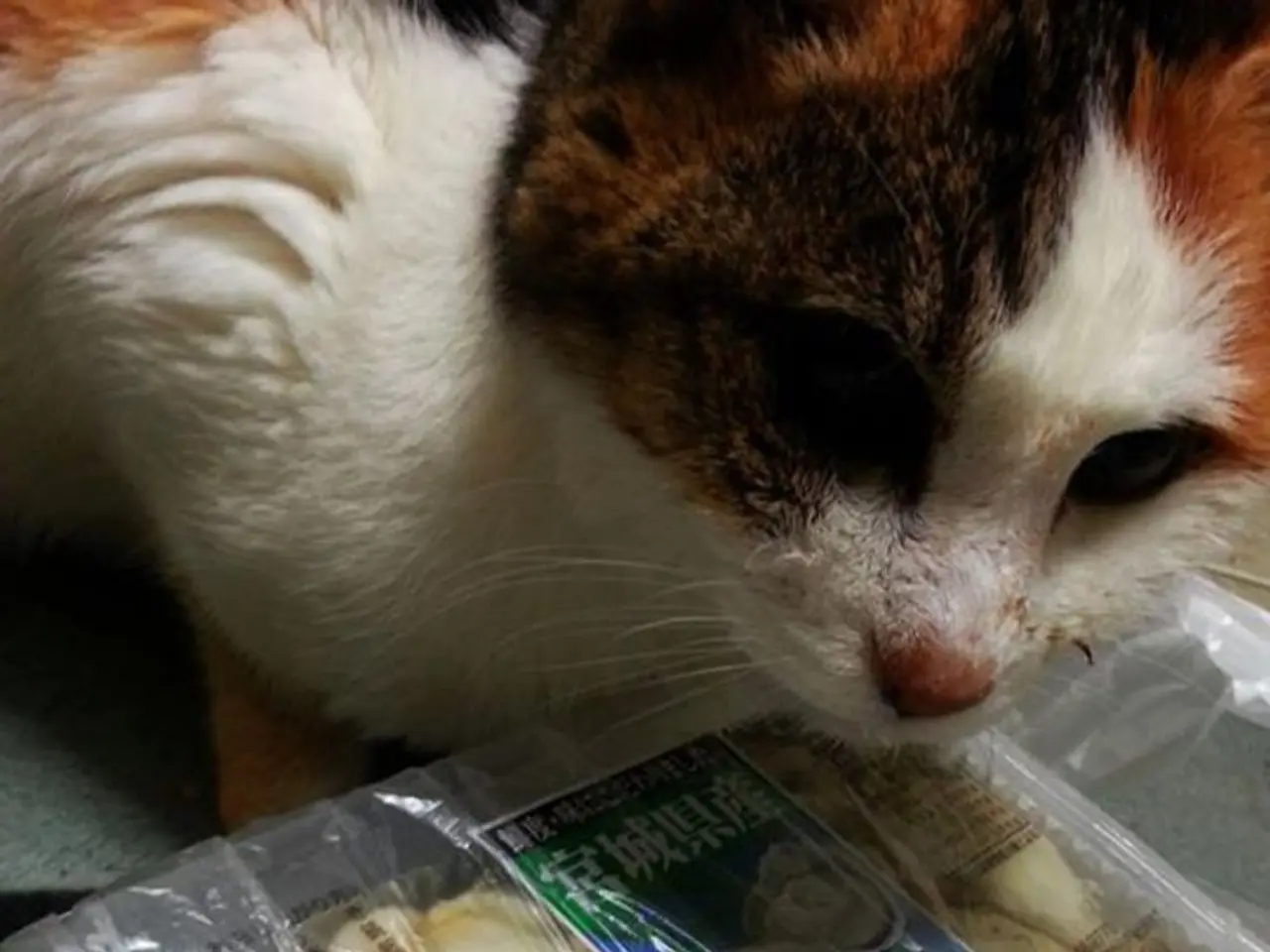Feline Appetite Loss: Identifying Causes and Appropriate Solutions
Cats, being creatures of habit, may sometimes stop eating due to various reasons. These factors can be behavioural, medical, or social, each with distinct contributing causes and warning signs to watch for.
Behavioral Factors
Stress, anxiety, changes in environment, or food preferences can lead to a cat's loss of appetite. Cats are sensitive creatures and changes in their routine or surroundings can cause them stress. Warning signs include reluctance to eat familiar food, hiding behaviour, or sudden avoidance of social interactions during feeding time.
Medical Factors
Illnesses such as dental pain, infections (FIV), diabetes, digestive issues, or other chronic conditions can cause anorexia in cats. Early medical warning signs are lethargy, vomiting, diarrhea, visible pain (e.g. pawing at the mouth), yellow gums, weight loss, or pale gums signaling possible anemia. In particular, dental problems often lead to decreased eating and resulting weight loss. Diabetes signs include increased drinking and urination with weight loss despite appetite, highlighting metabolic dysfunction.
If a cat has not eaten for more than 24 hours (12 hours for kittens), immediate veterinary care is recommended to prevent serious complications like hepatic lipidosis.
Social Factors
Social factors involve dynamics such as competition with other pets, overcrowding, or lack of attention from owners. These can cause stress that suppresses appetite. Warning signs may include aggressive behaviour during feeding, hiding from others during meal times, or eating significantly less when around other animals or unfamiliar people.
Monitoring Appetite and Early Diagnosis
Monitoring appetite alongside these signs is vital for early diagnosis and treatment. If these warning signs appear or if appetite loss extends beyond one day (especially in vulnerable cats like kittens or overweight cats), prompt veterinary attention is crucial.
Immediate Veterinary Attention
A cat that hasn't eaten for 48 hours and is acting sick requires immediate veterinary attention. If your vet confirms there's nothing wrong with your cat's health, here are some suggestions for stimulating their appetite:
- Adult cats typically eat 2-3 times per day.
- If your cat is drinking water but not eating, they may not require immediate action if they are otherwise looking and acting normal. However, it is still important to keep a close eye on them.
In conclusion, understanding the reasons behind a cat's loss of appetite can help in early diagnosis and treatment. If your cat stops eating, it is essential to monitor their behaviour and seek veterinary advice if necessary.
A cat's loss of appetite can be caused by factors related to health-and-wellness, such as dental problems, infections like FIV, diabetes, or digestive issues, each of which can have early warning signs like lethargy, vomiting, diarrhea, visible pain, yellow gums, weight loss, or pale gums signaling possible anemia. Moreover, a cat's disinterest in food may result from social factors, like competition with other pets, overcrowding, or lack of attention from owners, which can cause stress that suppresses appetite, and may be indicated by aggressive behavior during feeding, hiding from others during meal times, or eating significantly less when around other animals or unfamiliar people. In such cases, it's crucial to monitor appetite and seek immediate veterinary attention if necessary, especially if the cat has not eaten for more than 24 hours (12 hours for kittens).




